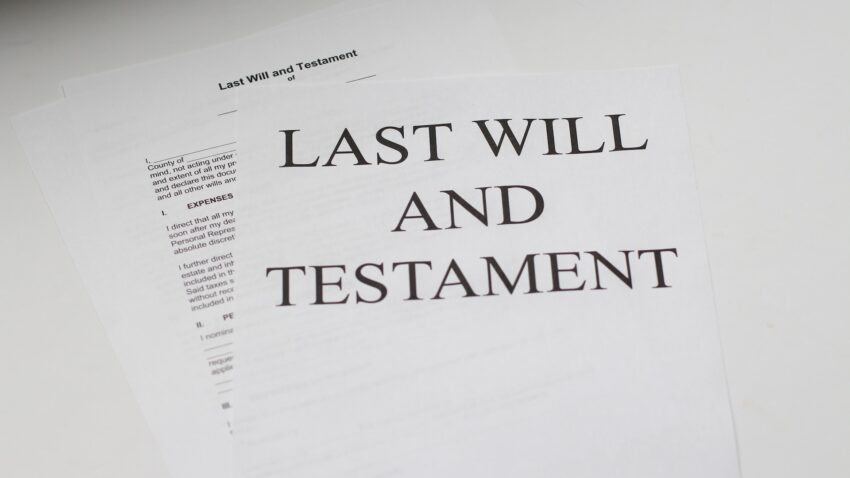Creating a comprehensive estate plan requires more than drafting a will or trust to ensure that your heirs receive all your assets in the event of your death. It involves preparing additional documents, such as a healthcare power of attorney.
When creating your final will and testament, making important decisions, such as selecting an executor and beneficiaries, is crucial. Additionally, it’d be wise to search ‘Notary near me‘ on the internet to find a reliable notary.
However, note that these positions do not involve managing or distributing actual property after death.
To guarantee that your property is managed following your desires and passed on to your designated beneficiaries or organizations, providing a comprehensive description of your assets in your will is crucial.
Contact a Florida probate attorney at Easler Law, or anywhere you desire, today. Hiring a professional with expertise in probate law can save you time and money by streamlining probate, the court-mandated process of transferring assets after death, and provide valuable guidance to help you navigate the complexities of drafting a will with peace of mind.
What Goes In The Will?
Given below are five major items added to the will apart from real estate property—
1. Bank Accounts
A will should mention different bank accounts, such as checking, savings, and money market accounts, as monetary assets rather than listing each particular account or item.
Accounts that are Transfer on Death (TOD) or Payable on Death (POD) do not need to be listed.
If a beneficiary is designated, the bank transfers money to that individual when the account holder dies.
If a bank or financial account owner doesn’t name a beneficiary, it can be harder to manage.
However, if a co-owner or beneficiary is listed, the account can avoid probate, and there is no need to mention it. It is crucial to check the account details regularly.
2. Digital Assets
Digital assets, such as images and social media accounts, can be left to future generations through a will if transferable. Leave log-in details and instructions in a separate letter to ensure executor access.
Digital estate plans should take notice of these assets, which might be kept on the Internet, mobile devices, or desktop PCs.
You may own some digital assets, while you may also have lifetime access to others. You can give the digital asset to your loved ones in a will or living trust, but not in a living trust.
Nevertheless, you are still responsible for what happens to the asset or online account after your passing.
Individuals can pass down digital assets such as Bitcoin and other cryptocurrencies through the generations.
3. Heirlooms
Heirlooms are personal belongings passed down through inheritance and cannot be disposed of until the owner dies.
Regarding estate planning, it is crucial to address these cherished possessions using a personal property memorandum.
Heirlooms can range from antiques, tools, and jewelry to family bibles and other artifacts from the past.
It is important to have an open and honest conversation with family members about these items and consider their preferences and wishes.
For instance, a necklace from a sibling’s first date might have sentimental value despite having little financial worth.
By incorporating heirlooms into your estate plan, you ensure their preservation and passage down through generations.
4. Investments
To ensure that your wishes are fulfilled, it is crucial to plan for the distribution of your assets after your demise.
One of the ways to achieve this is by incorporating all your investments in your will. This entails listing each investment separately with detailed specifications, such as the type of investment and its corresponding account number.
Additionally, it’s of utmost importance to choose a trustworthy and dependable executor to oversee the management and distribution of your investments as per your instructions.
These measures will ensure that your loved ones receive your investments according to your wishes, giving you peace of mind.
5. Considerations Of Guardianship
If you’re creating a will, including guardianship provisions is important. This will make sure that vulnerable individuals are cared for and protected.
Choosing suitable people for these duties is crucial. When you write detailed instructions in your will, you can help ensure your loved ones are cared for according to your wishes.
Will and trust attorneys can help answer any questions or concerns regarding guardianship.
By incorporating guardianship provisions in your will, you can appoint who you want to care for your children or dependents if something happens to you.
This guarantees that your wishes are respected and carried out in court.
Will and trust attorneys offer professional advice for creating a comprehensive will that includes guardianship provisions customized to your specific needs and concerns.
Make your Will Mindfully
Estate planning is a crucial practice that serves two main purposes: protecting asset access during incapacity and dividing the assets after death.
However, to avoid confusion and delays, it is important not to name certain assets in a will. Insurance policies mandate payouts without probate, but trust assets do not.
Assigning a beneficiary for your retirement funds ensures their transfer to the designated recipient. Assets will immediately transfer to the beneficiary you designate for “Payable on Death” and “Transfer on Death” accounts.
It is necessary for both names to be listed on the property title or deed to establish joint ownership.
Finally, updating your will every three to five years to remain current is important.

